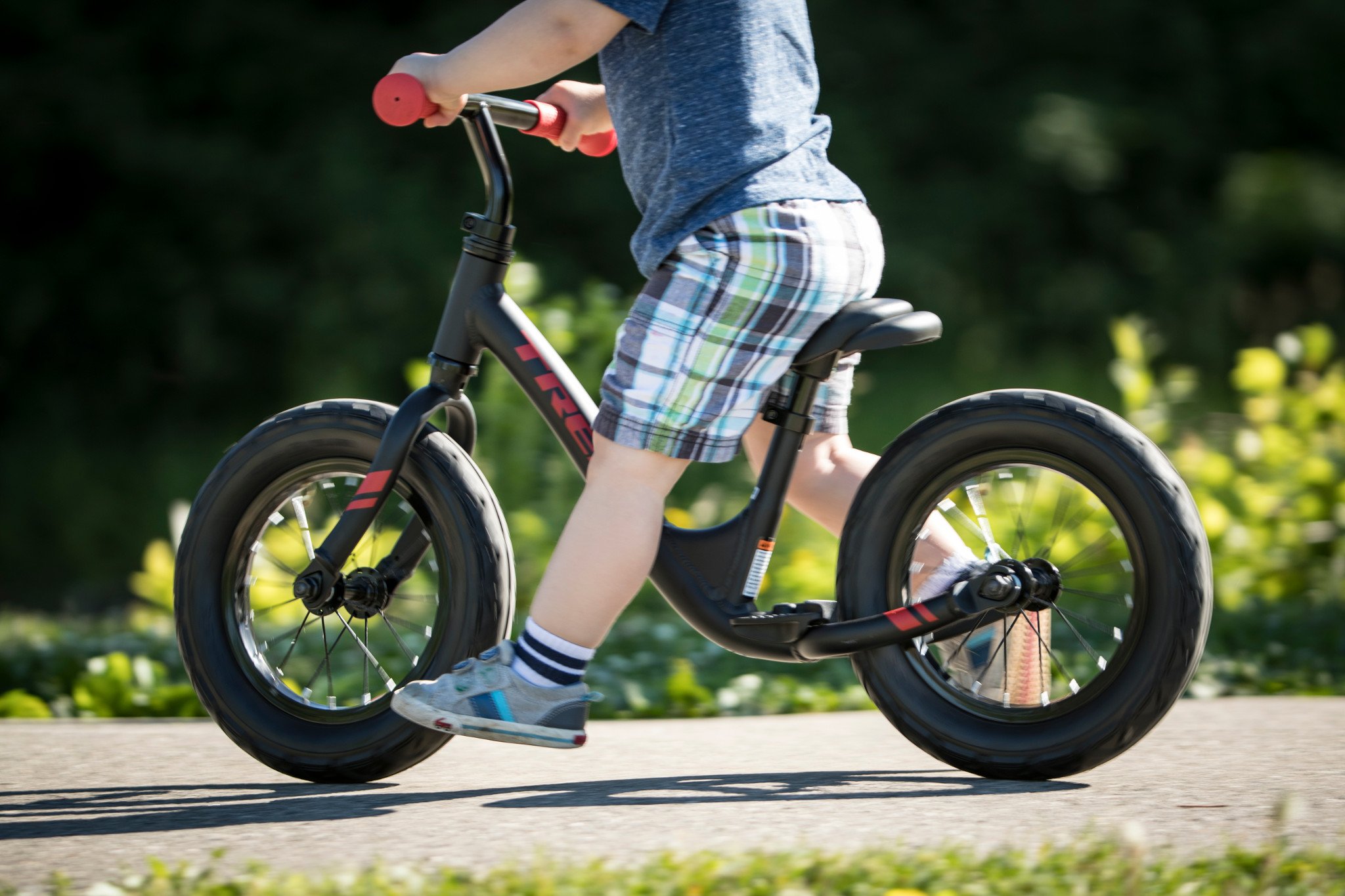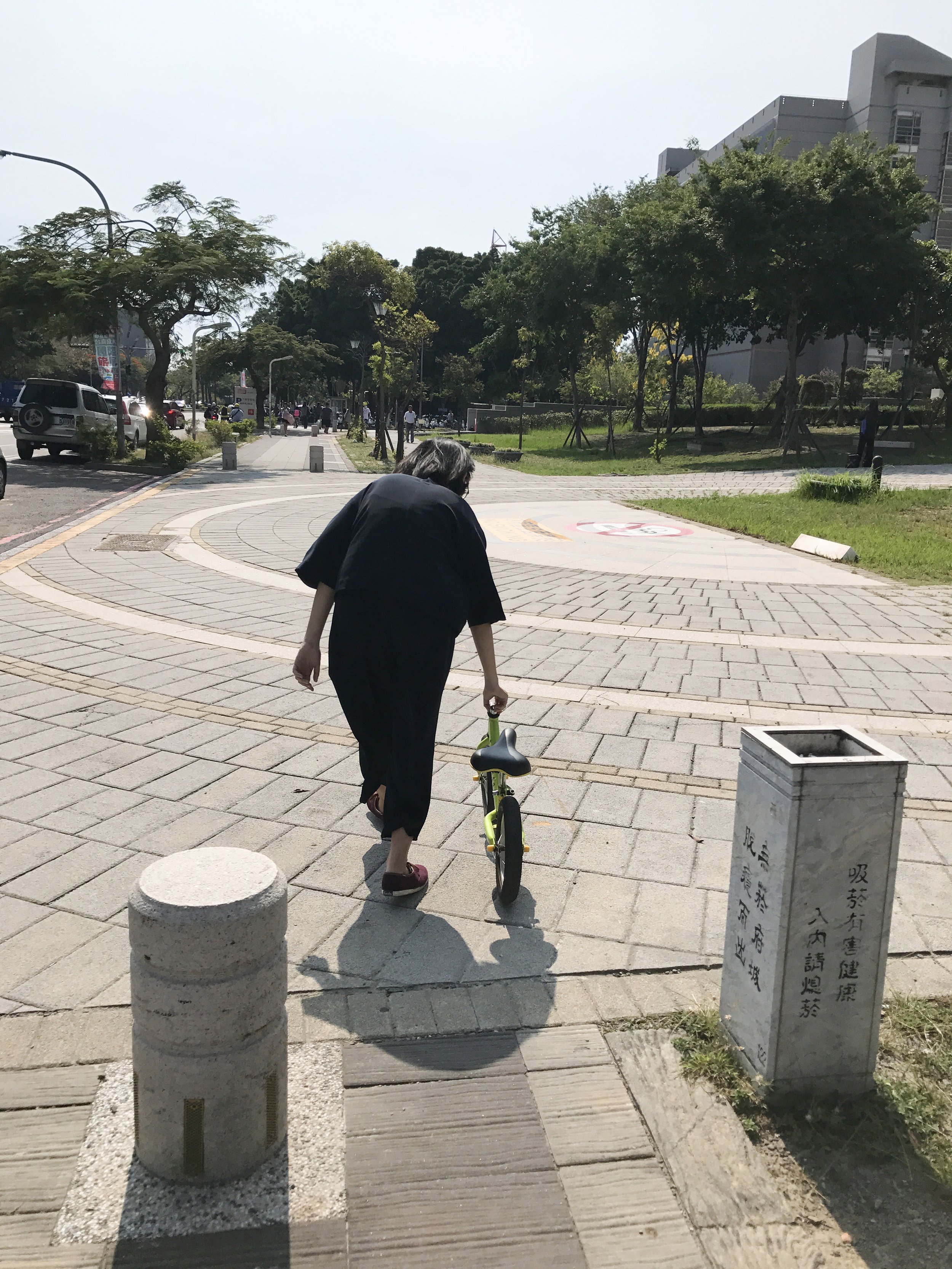BAMA Bike
industrial design • hardware UX • model making
BAMA Bike
A kid’s balance bike designed
with the parents in mind too!
What are
Balance Bikes?
Balance bikes are training bikes that help children learn to balance and to steer. It has no foot pedals nor gears and only moves when the rider scoots. Usually used by kids aged 1.5 to 6 years old.
Parent-Child
Relationship
Bike outings are precious memories for both the kid and parents. Parents are by the side when their kids learn, fall, and grow; and with the parents’ support, a child is given wings to explore the world.
The Parent‘s
Helping Hand
Our field research and interviews highlighted that in a bike outing, parents take care of many other things while kids enjoy their ride. We find parents constantly looking after their kids to be able to give a helping hand anytime.
Journey Mapping
Some low points in the parent’s emotional curve are shown as below. A bike outing can be laborsome for parents especially compared to the child’s generally pleasant experience.
Focus on Ease of Handling
Throughout research, there was a common pain point for parents in discomfort while walking the bike in awkward postures. For example walking with their back hunched because kids’ bikes are only so tall.

A bike that’s Fun for Kids,
and Easy to Use for Parents!
Grip Handle
Flip Grip
Pull Out Handle
Safety Cap
Rounded caps that attach magnetically to cover up all the sharp hardware preventing children from being scratched.
Saddle Adjustment Guide
Etched scale on the saddle post suggests the appropriate seat height based on children’s height.
Kickstand
A kickstand for parking the bike that nests inside an indent to prevent scratching.
Explorations
& Tests
Ergonomics References
In order to make informed decisions for the length of the pull-up handle, and the saddle height suggestion. We took measurements from colleagues who were radically tall or small; we also noted measurements of children’s height and leg length. This part definitely needed more scientific research, but hopefully, the idea came through.
Model Making
To have a working model had been one of our goals from the very beginning. Throughout the design process, we simultaneously brainstormed and researched on how and with whose help we could fabricate a working prototype.
User Feedback
We brought our working model to a nearby park and invited people to try it. Interestingly, some users were using the bike in ways that we didn’t intend to; they inspired us too! And it was just really rewarding to see them enjoying playing with our bike!
Team
This is a group project done with Claire Hsu from our sophomore year design studio.
Reflection
Looking back, I think we could have taken more freedom in form. We were really determined to build a working bike, so our form-giving ideas were somewhat confined to what was able to wrap around the purchased bike frame.
Grip Handle
Flip Grip
Pull Out Handle
Safety Cap
Rounded caps that attaches magnetically cover up all the sharp hardware preventing children from scratching themselves.
Saddle Adjustment Guide
Etched scale on the saddle post suggests the appropriate seat height based on children’s height.
Kickstand
A kickstand for parking the bike that nests inside an indent to prevent scratching.
























